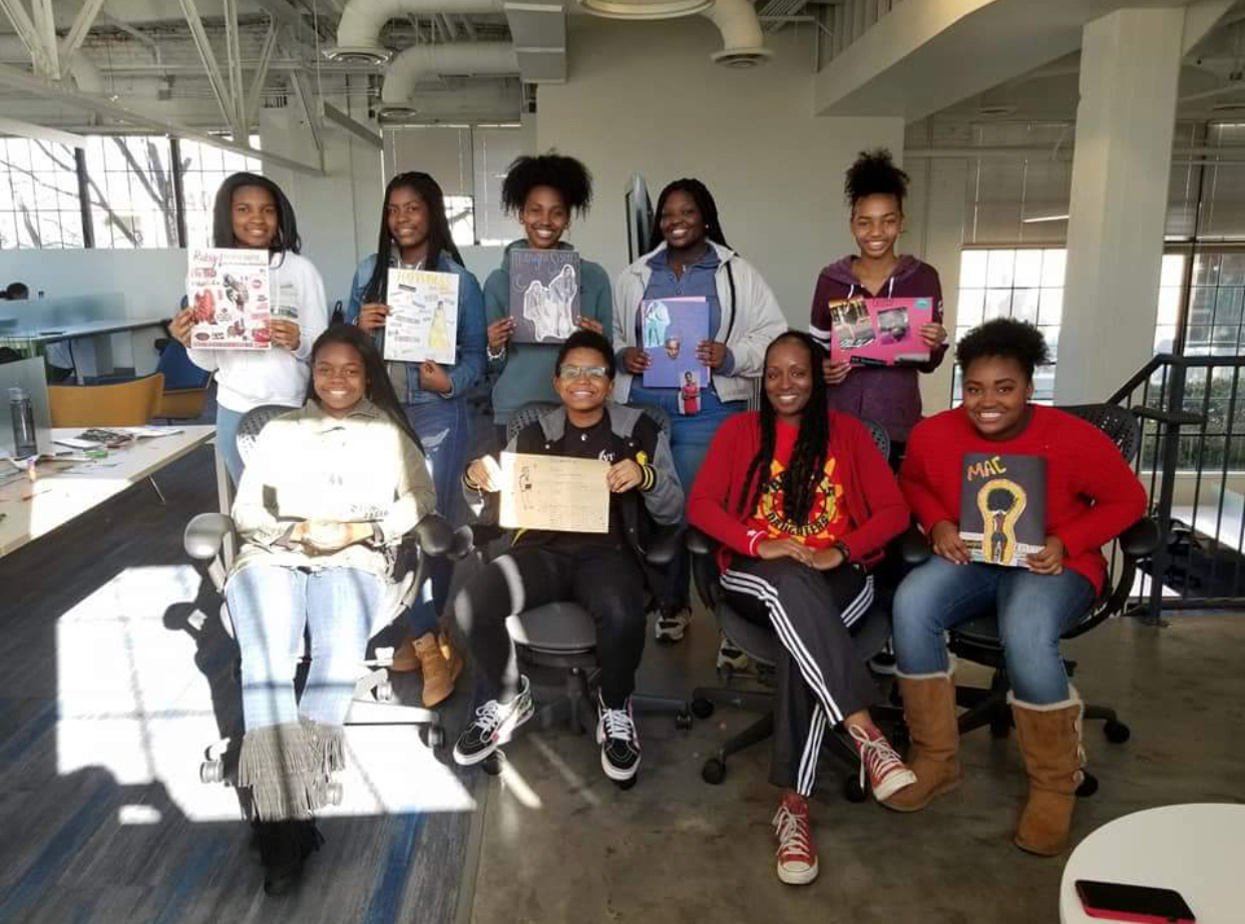Announcing the Lyman 2018 Fellowship Recipients

BCNM is excited to announce Grace Gipson (African American Studies) as this year’s Lyman fellow and Nicholaus Gutierrez (Rhetoric) as the Fellowship’s runner-up.
Grace D. Gipson's project, “Releasing Your Inner Superhero,” is linked to her overall dissertation, which is in collaboration with the SCAT (Supporting Computational Algorithmic Thinking) Scholars program, that deals with computer science and Black female comic book fan culture, particularly in young adolescent Black girls. Black female voices are not only present in the fictional format as comic book characters; but also outside the comic book story as creators and storytellers. Many of these creations and stories incorporate computational thinking and are told digitally through new media formats, such video blogs and game design. In many cases a simple tweet or google search led to the creation of an online community, podcasts, or innovative game. And through their voices, they are able to unpack Black female narratives in comics and IT, introduce different and various perspectives of Black womanhood, and shift the mindset of a burgeoning, blended fan culture of comics, gaming and nerdom.
“Releasing Your Inner Superhero” is a three-part project that includes the young girls creating their own superhero, digitally sharing their creation story, and transforming their characters into a game-format. In the first step, the young girls create and build their superheroes in a vision board style by cutting and pasting images and words from magazines to an abbreviated size poster. Upon completion of the young girls crafting their superheroes, the young girls will be asked to expound on their characters in a testimonial video blog (vlog) format. This testimonial will allow the girls to vocalize their descriptions of their characters as well as offer further explanation to the character’s creation stories. The last step of the project is the eventual game design of their superhero characters. The digital testimonies and their creative gaming characters showcase how these mediums contribute to young Black girls having accessible tools that provide a place to escape, discover and find community. Additionally, equipping them with digital tools of empowerment and confidence that can be used in their classrooms or for personal use.
Overall, Grace’s project also speaks to her dissertation project and its focus on Black female identity formation through the use of Black female superheroines. Many Black children, especially Black girls, find themselves invisible within the IT and comic book world. This notion lends to difficulty in establishing confidence for those who are passionate about pursuing computer science and gaming, while also telling stories filled with fantastical, fictional realities. Thus, “Releasing Your Inner Superhero” seeks to use new media platforms that construct new methods of reimagining blackness, black nerdom, and womanhood that combines digital technology and comic book culture. Ultimately, this project with the help of the Lyman Fellowship will contribute to the new media landscape by adding more spaces of recognition for Black female voices in a space where they find themselves lost in the digital noise.
Grace will receive $6,000.
Nicholaus Gutierrez’s research begins with the question, ‘what is the virtual, and why has it played such a prominent but ambiguous role in describing digital technologies?’ Today, the term “virtual” is used as both an ambiguous signifier that helps to situate digital technologies under the familiar concepts of space and place, and that stitches together concepts that we tend to bifurcate: representation/real, immaterial/material, distant/present. With this in mind, his dissertation explores why and how the virtual has played such a prominent but categorically confused role in describing digital technologies, and how a more robust conception of the virtual might serve to clarify and enhance an understanding of digital objects and the human subject’s relationship to them. This involves researching the virtual from three perspectives: the history of Virtual Reality (VR) technologies, a field where many of the ambiguous narratives of disembodied digital space were born; the history of the virtual as a philosophical concept, whose concerns around ontology resonate with questions about the nature of digital objects and worlds; and an analysis of a contemporary digital object, the video game engine, which might offer an alternative way of conceiving of the virtual that moves beyond the binaries of materiality and space and onto new, robust terrain for thinking about human subjectivity. Using a comprehensive notion of the virtual in conjunction with VR technologies and the video game engine, Nicholaus argues that, beyond the typical binaries of virtual/real or virtual/material, the virtual allows us to think of digital objects with a multi-layered and dynamic existence that requires both the material and immaterial in order to function as the objects that we act upon, and that act upon us.
Nicholaus will use the $2500 from the Lyman Fellowship to continue research on video game engines.
